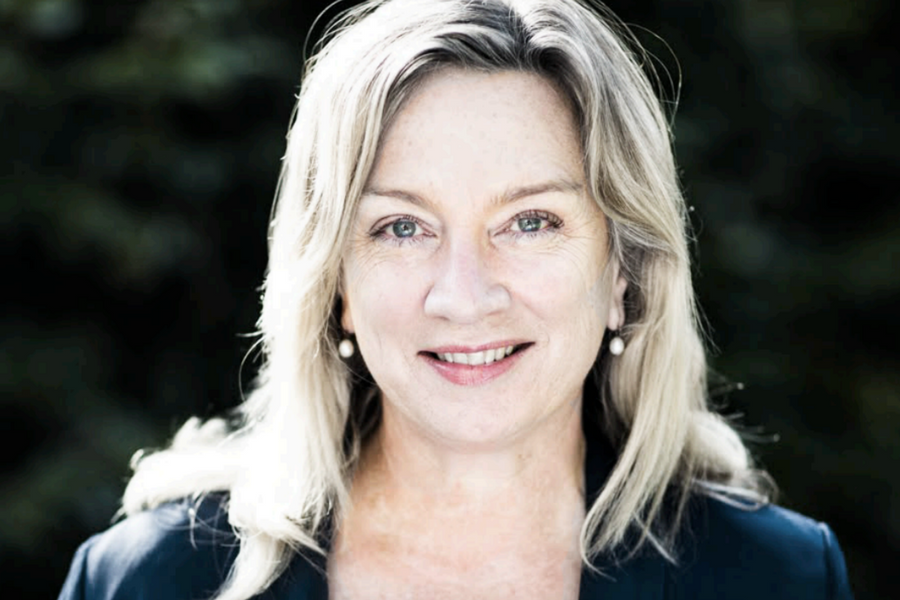As any business mentor worth their salt will say, it’s not about the idea, it’s about the execution.
It would have been easy for Chantal Abouchar to present her Master’s thesis, which examined global accelerators focused on startups in the entertainment industry and presented four models for a potential Australian effort, and decide it was too hard to actually execute.
A Walkley Award-winning cinematographer, director, and producer, Abouchar undertook a Masters of Screen Arts and Business at AFTRS, with the thesis she presented in 2015 looking at Media Camp, Time Warner’s accelerator program.
Aimed at future proofing its own business, the program had at the time worked with 27 startups over three years before it was shuttered in 2014, from a YouTube analytics platform to a startup aiming to change the way audiences consume news broadcasts.
Inspired by what she had seen overseas and deciding it was too important to the future of the creative industry to pass up, Abouchar set about trying to bring to life one of the models she had put forward: a VC-funded program, a corporate model such as Time Warner’s Media Camp, a program run by a network of other founders and entrepreneurs, or an accelerator partnered with universities.
Three years later, the result is something a little different from the proposed ideas, but just as crucial for Australia’s creativetech industry: The Studio, a coworking space named an anchor tenant at the newly opened $35 million Sydney Startup Hub aimed at startups in the media, entertainment, music, games, and creative industries.
“Things don’t happen overnight. It was literally me just sitting at a desk, calling people and saying, ‘this is what the research shows and this is what we need to do’, but then it’s about, how do you do that? Because I’d never done this before,” Abouchar said.
While she had never launched a coworking hub or incubator program before, Abouchar said she soon realised the skills she had built through her career in media and entertainment were transferable to the startup world.
“Looking at my background as a documentary maker, what does that actually mean? It meant I’ve never had a desk, I was out in the world making deals and making things happen, and those are absolutely the skills you need for starting a startup, which is what The Studio is.”
Abouchar started small, setting up a meetup group for those interested in creativetech and innovation in the media and entertainment industry, with each week focusing on the application of a different technology, such as blockchain, to the sector; soon, the group had 2,000 members.
“The meetup was really a proof of concept, to ask, is there a need for this? And we saw there was,” she said.
For Abouchar, the growth of the group was no surprise. As she points out, the media and creative sectors have long been innovative, creating new technologies, systems, and processes to get things done; when Abouchar herself started her career in the industry as a camera assistant, she said, crews were using trucks full of equipment that can now all be found in a smartphone.
(A more recent case in point: a Kiwi artist and software developer worked with filmmaker Taika Waititi to create a new lighting rig for a shot in Thor: Ragnarok.)
As the meetup group grew and the idea of a coworking space came to life, Abouchar also pulled together a consortium of industry and academic partners that now includes the likes of Dolby, NIDA, AFTRS, Data61, and Animal Logic, who realise the potential of creativetech innovation.
The Studio also became part of the Sydney Culture Network last October, an initiative to link Sydney’s artistic hubs, including galleries, libraries, coworking spaces, and museums, to boost collaboration and public engagement.
“The response from industry has been really positive, and I think that will now go to another level, because it will give the industry a good way to connect to the startup ecosystem; there hasn’t really been another way in, it’s all been really fractured,” Abouchar said.
“In our industry people collaborate on a creative level as a matter of course, but in an incubator environment, collaboration is more around business strategy and ideas – and that’s why our business and academic consortium partners are so important. They give startups a perspective that is hard to gain any other way.”
The launch of The Studio was officially made public last year as it received $500,000 from the Federal Government as part of the National Innovation and Science Agenda’s (NISA) $23 million Incubator Support scheme, and was announced as an anchor tenant in the Sydney Startup Hub in July.
As well as 150 desks and meeting areas, The Studio will give residents access to broadcast studios, including green screen, sound, augmented and virtual reality facilities, as well as events and programs powered by its consortium partners; rather than a coworking space, Abouchar considers The Studio an incubator.
Residents of other spaces within the Sydney Startup Hub will also be able to gain access to The Studio’s facilities and various events, with Abouchar hoping more across the wider startup space will come to realise the importance of the creative.
“As things become more automated, the creative element of any startup or business can almost be the X factor, because sure, you can potentially automate creativity to a degree, but creativity can make a big difference,” she said.
Opening its doors on Friday and early bird residents including first residents Oovoo and The Working Group already moved in, The Studio has joined QUT’s Creative Enterprise Australia as a central hub for Australia’s creativetech innovation.
As the hub gets going, Abouchar and the team are working to develop programs to further push the creativetech sector along.
Image: Chantal Abouchar. Source: Supplied.




















Trending
Daily startup news and insights, delivered to your inbox.